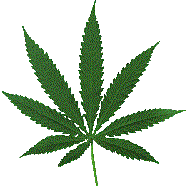|
Cannabis
linked to Biblical healing
Jesus Christ
and his apostles may have used a cannabis-based anointing oil
to help cure people with crippling diseases, it has been claimed.
Researchers
in the United States say the oil used in the early days of the
Christian church contained a cannabis extract called kaneh-bosem.
They suggest
the extract, which is absorbed into the body when placed on the
skin, could have helped cure people with a variety of physical
and mental problems.
"The
medical use of cannabis during that time is supported by archaeological
records" Chris Bennet
The author
of the article, published in the US drugs magazine High Times,
says his findings are based on a study of scriptural texts.
Wide
use
The article does not question the validity of the miracles reported
in the Bible but rather examines whether the early Christian Church
may have made use of substances with an active medical effect.
It does
not rule out the role played by blind faith in Christ.
Chris
Bennett said cannabis was widely used at the time to heal the
sick.
"The medical
use of cannabis during that time is supported by archaeological
records.
" He said
the ancient anointing oil contained high levels of cannabis extract.
"The holy
anointing oil, as described in the original Hebrew version of
the recipe in Exodus, contained over six pounds of keneh-bosum
- a substance identified by respected etymology, linguists anthropologists,
botanists and other researchers as cannabis extracted into about
six quarts of olive oil along with a variety of other fragrant
herbs.
"The ancient
annointed ones were literally drenched in this potent mixture."
|
|
Miracles
Mr Bennett suggested the drug may have played a role in some healing
miracles carried out by Jesus and his disciples.
He wrote:
"In the ancient world, diseases such as epilepsy were attributed
to demonic possession.
"To cure
somebody of such an illness, even with the aid of certain herbs
was considered exorcism or miraculous healing.
"Jesus
often becomes the final hope for the pharmacologically impaired"
JesusJournal.com
"Interestingly,
cannabis has been shown to be effective in the treatment of not
only epilepsy but many of the other ailments that Jesus and the
disciples healed people of such as skin diseases, eye problems
and menstrual problems."
Mr Bennett
said the findings suggested that it was unchristian to persecute
people who used cannabis.
"If cannabis
was one of the main ingredients of the ancient Christian anointing
oil, as history indicates, and receiving this oil is what made
Jesus the Christ and his followers Christians, then persecuting
those who use cannabis could be considered anti-Christ."
However,
Christian groups in the United States have rejected Mr Bennett's
claims.
They have
insisted that the arguments made in the article are lame.
In a response
to the article published on JesusJournal.com, critics said: "As
many of us know firsthand, Jesus often becomes the final hope
for the pharmacologically impaired."
John Cunyus,
the author of a book on Christian healing, said: "Well, the Bible
does say that St. Stephen was stoned... but perhaps not in that
sense!"
|
